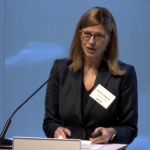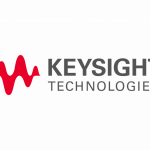A Deeper Dive into Q-CTRL’s and Quad Investors’ Goals of Quantum Workforce Diversity in Australia and the US

In a recent significant move to boost quantum technology education, Q-CTRL, a quantum control infrastructure software leader, partnered with the Quad Investors Network (QUIN) to foster quantum workforce diversity in Australia and the United States. This collaboration was revealed in tandem with Q-CTRL’s CEO, Dr. Michael J Biercuk’s attendance at the White House to welcome Australian Prime Minister Anthony Albanese on his US visit.
Under this groundbreaking agreement, Q-CTRL will provide fully subsidized licenses for its Black Opal quantum educational technology software to students in Technical and Further Education (TAFE) institutions in Australia and Historically Black Colleges and Universities (HBCUs) in the US. Set to begin in 2024, the initiative plans to extend its reach to other Quad countries through future collaborations, encouraging more diversity in this industry.
“We know that realizing the potential of the quantum opportunity requires a broad range of professionals to be quantum conversant – from policymakers and marketers to software engineers,” Q-CTRL’s CEO and University of Sydney Professor Biercuk told Inside Quantum Technology. “But most formal programs for workforce development have only targeted specialists in quantum physics and quantum computing. Our aim with Black Opal has been to ensure that a diverse range of experts can embrace and contribute to the quantum sector meaningfully. The product starts from no assumed background knowledge, so anyone can go from zero to programming quantum computers. Not only does this ensure that we have a diverse set of practitioners contributing their expertise to our field, but it also addresses historical disadvantages in who has access to this high-growth field. We’re excited to take a new approach to deliver on the vision of an inclusive and representative quantum sector.”
This initiative aligns with the Quad partners’ shared objective of building a skilled workforce and promoting diversity, equity, inclusion, and accessibility within the quantum technology ecosystem. Australia’s Chief Scientist Cathy Foley noted, “This partnership exemplifies private sector leadership. Enhancing quantum literacy and investment will fast-track quantum technologies, harnessing this new era’s full potential.”
This initiative departs from traditional higher education focuses, predominantly on training PhD students. It uniquely targets post-secondary students from non-quantum backgrounds, facilitating their entry into the industry. Such workforce development is a strategic investment in a sector that promises revolutionary advancements across various fields, including finance, pharmaceuticals, defense, and cybersecurity.
“We are committed to making access to quantum education available as broadly as possible, and look forward to identifying new ways to increase reach with partnerships in government and the private sector,” added Biercuk.
Kenna Hughes-Castleberry is a staff writer at Inside Quantum Technology and the Science Communicator at JILA (a partnership between the University of Colorado Boulder and NIST). Her writing beats include deep tech, quantum computing, and AI. Her work has been featured in Scientific American, Discover Magazine, New Scientist, Ars Technica, and more.



















